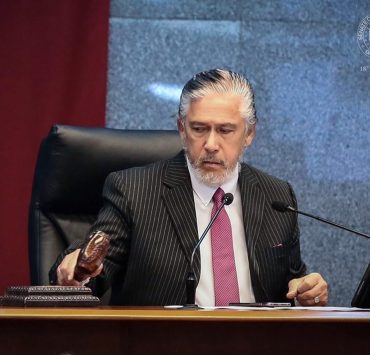Through a statement on June 3, United Nations (UN) High Commissioner for Human Rights Michelle Bachelet spoke up against the governments of several Asian countries using the pandemic as a reason to clamp down on citizens’ right to freedom of expression.
Expressing alarm over the censorship they have been seeing in several countries during the COVID-19 pandemic, Bachelet called out 11 Asian countries where increasing cases of citizens getting arrested for being critical of their government’s response towards COVID-19 have been reported.
These countries are Bangladesh, Cambodia, China, India, Indonesia, Malaysia, Myanmar, Nepal, Sri Lanka, Thailand, Vietnam and the Philippines.
The UN High Commissioner detailed the censorship in each country, where arbitrary arrests and charges against citizens and the press voicing out their views on the government’s response to the pandemic or allegedly spreading misinformation are common denominators.
For the Philippines, Bachelet specifically cited cases of arrests made under new COVID-19 special powers legislation which incriminates citizens who allegedly spread false information.
Among those she mentioned was the case of an artist in Cebu City—Maria Victoria Beltran—who was arrested after the mayor accused her of spreading fake news about the surge of COVID-19 cases in the locality. Arrested past 2 a.m. of Apr. 19, Beltran was incriminated for a satirical Facebook post.
Another case that Bachelet mentioned was of a government ministry—the Philippine Overseas Labor Office—appealing to the government of Taiwan to deport an overseas Filipino worker in their country due to her critical online comments against President Rodrigo Duterte.
“In these times of great uncertainty, medical professionals, journalists, human rights defenders and the general public must be allowed to express opinions on vitally important topics of public interest, such as the provision of health care and the handling of the health and socio-economic crisis, and the distribution of relief items,” said the UN High Commissioner.
While Bachelet recognized the need to fight the spread of misinformation and disinformation as well as incitement of hatred towards minority groups during such critical times, she also noted that actions and measures must be proportionate and serve a legitimate public health purpose. Aside from adhering to the principles of legality and necessity, she also noted that governments should take the “least intrusive” approach required to stop misinformation and disinformation.
“This crisis should not be used to restrict dissent or the free flow of information and debate. A diversity of viewpoints will foster greater understanding of the challenges we face and help us better overcome them. It will also help countries to have a vibrant debate on the root causes and good practices needed to overcome the longer-term socio-economic and other impacts. This debate is crucial for countries to build back better after the crisis,” said Bachelet.
Header photo from Grig C. Montegrande for Philippine Daily Inquirer
Get more stories like this by subscribing to our weekly newsletter here.
Read more:
Taiwan has spoken: OFW critical of Duterte stays, protected by freedom of speech
With 173 yes votes at the House, Anti-Terror Bill needs only Duterte’s signature to become law
Don’t use the pandemic as a sorry excuse to disregard human rights
Writer: YANN MAGCAMIT




